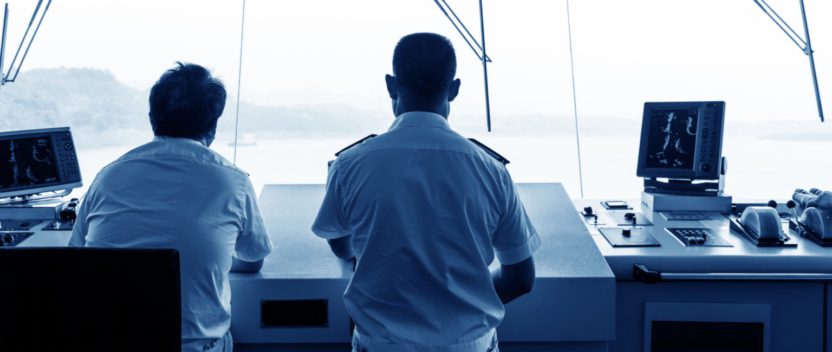Who controls shipping and why it matters to finance
“Who are the world’s largest shipowners?” asked Stavros Tsolakis, MPA Professor of Maritime Economics at the Singapore Management University, during the second International Shipowning and Shipmanagement Summit last week. The question drew the predictable responses – Maersk, COSCO, China Shipping Group or Oaktree Capital.
All wrong, said Tsolakis, in fact it’s the Korea Development Bank and China’s ICBC Leasing. In part this is because they have ended up with assets that are seeking a long term owner, but his point was clear – the world’s largest owners are not owners, they are state-owned entities whose agendas are completely different from the big – let alone the average – shipowner.
But there was more – the world’s largest shipbuilder? South Korean, for sure but not Hyundai or Samsung – in fact the Exim Bank of Korea. The picture, he said ‘is very different from what we think’.
“What we see is a situation like that which owners faced in 1980s. Shipowners don’t compete with counterparts, they compete with entire states and countries. Private companies that fail financially go down, but in these cases, states keep pouring money into the system,” he said.
Why are states supporting shipping and shipbuilding? For simple, nationalistic reasons. As a major export earner, shipbuilding boosts national reserves, supports security and investment, promotes direct and indirect employment, technology innovation and the maritime cluster concept.
The problem falls to ‘real’ shipping businesses which are constantly driven by the need to streamline, achieve greater efficiencies through optimisation and cost cutting, find niche markets and new financial resources for working capital and expansion. All that and make a profit in some of the toughest markets in a generation.
“Owners have to be ahead of the curve just to compete against the big guys. Even world’s largest shipowners, be it Angelicoussis or Fredriksen, lack the funds to compete with the money this big.”
The effect of this cause is that Private Equity finance is no longer the cuckoo in the nest, but actually the vital missing link in enabling owners to compete, he suggested.
Our common perception is that PE acted like a version of this state-backed exuberance, entering the market after 2008 and blithely throwing money around before founding joint ventures and ordering ships. Either that or they were ‘vital providers’ of liquidity.
“We have heard the story over and over again. Many people consider 2008 to be the beginning of PE in shipping, 2012 the peak and 2014 the year PE lost money and looked to exit. Well I have some news for you, PE is as old as shipping itself.”
Shipping families have been coming together to found private shipping funds and attracted outside investors for centuries, just as K/S or K/G have attracted high net worth individuals for 40 years or more.
Focussing only on what any financially-backed institution from the US or London did in the last five years is a little unfair to the PE market, Tsolakis contended, since shipowners have always sought money from outside sources.
The fuss about finance and PE in particular wouldn’t have happened without the financial crisis and the withdrawal of bank finance that previously offered owners incredibly good value compared to the internal rate of return a PE fund would demand.
“PE noticed shipping which was a good thing, because if you went to the US 10 years ago and talked about shipping, they would think you were UPS. The biggest disaster was for the average Greek shipowner because they depended on smaller banks to provide traditional debt-based ship finance,” he explains.
But this is not the end of the story. Shipping is not a ‘bottom-up’ market – risks and threats do not bubble up from smaller shipowners to the larger ones. As the market has tightened, so PE’s interest has shifted from public companies and large ventures to smaller operations.
The rumour of money in the market for the big guys spreads fast and soon where there was one fund, there were 10 with better deals available.
After this highly contentious and visible period in the market, PE has done what owners do; evolve and try to fill a gap in the market by financing medium-sized shipowners, moving from a focus on $2-400m deals to clips of between $5-15m, catering, Tsolakis said, to the needs of much smaller owners.
“The question is, is that an attractive place? It seems yes, because Private Equity is as important as ever, whether it’s in distressed sectors or trying to get into very fragmented niches and gain share,” he says. The other question is whether this gives owners at least one good tool with which to fight the state behemoths, though the contrast between state-backed, politically-motivated banks and the demands of private equity have never seemed further apart.
The problem for owners and managers, Tsolakis said, are of a different order of magnitude even if many of the same rules apply. When the banks stabilise and liquidity returns, margins will go down and PE will exit.
“In the meantime, owners and managers are left with the problem of how they compete on margins that can be as thin as $100 a day. To someone outside the industry that isn’t much but inside it, it may be the difference between survival and failure.”


